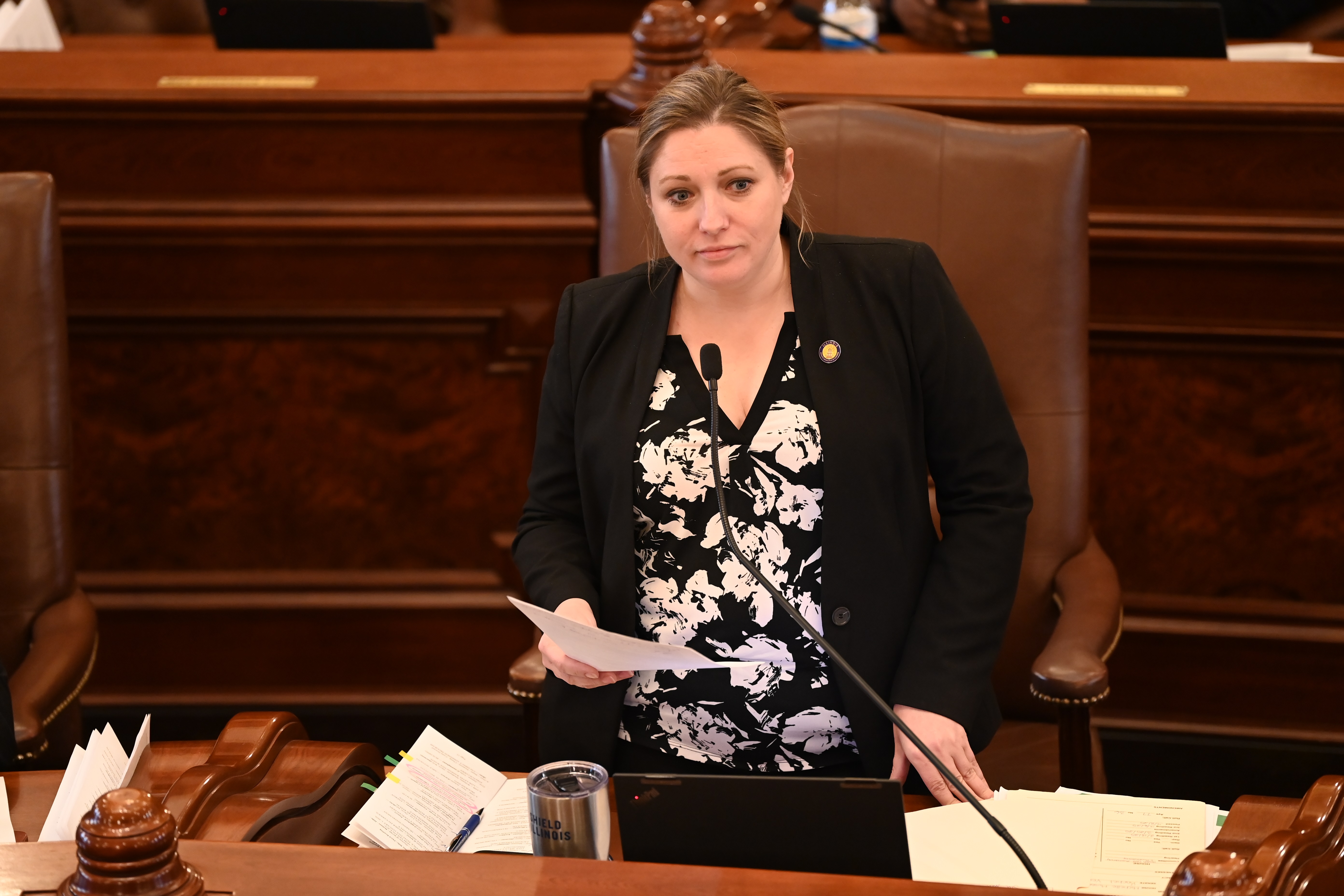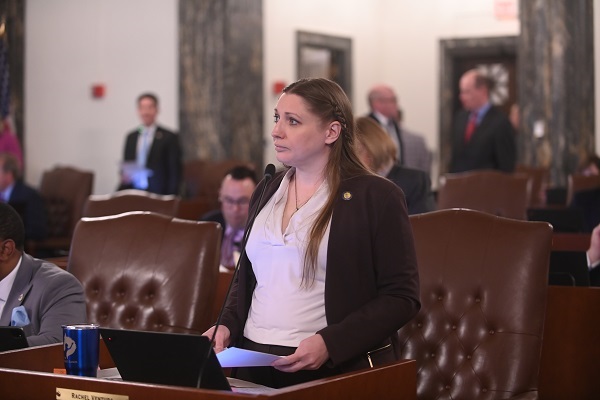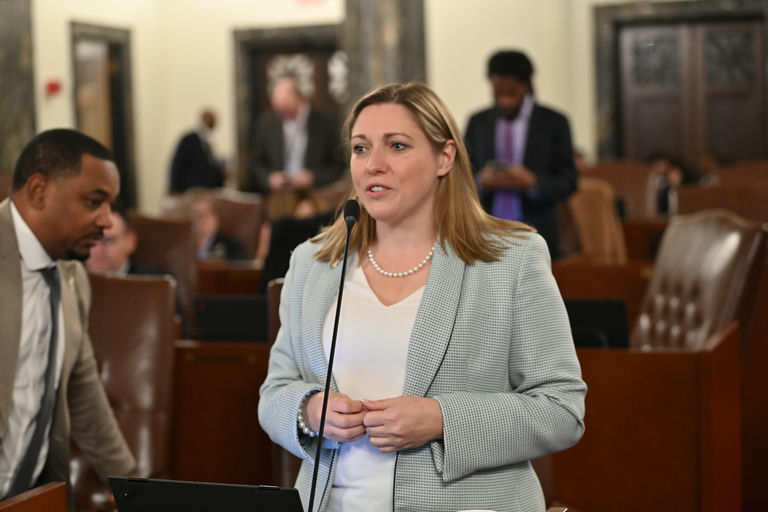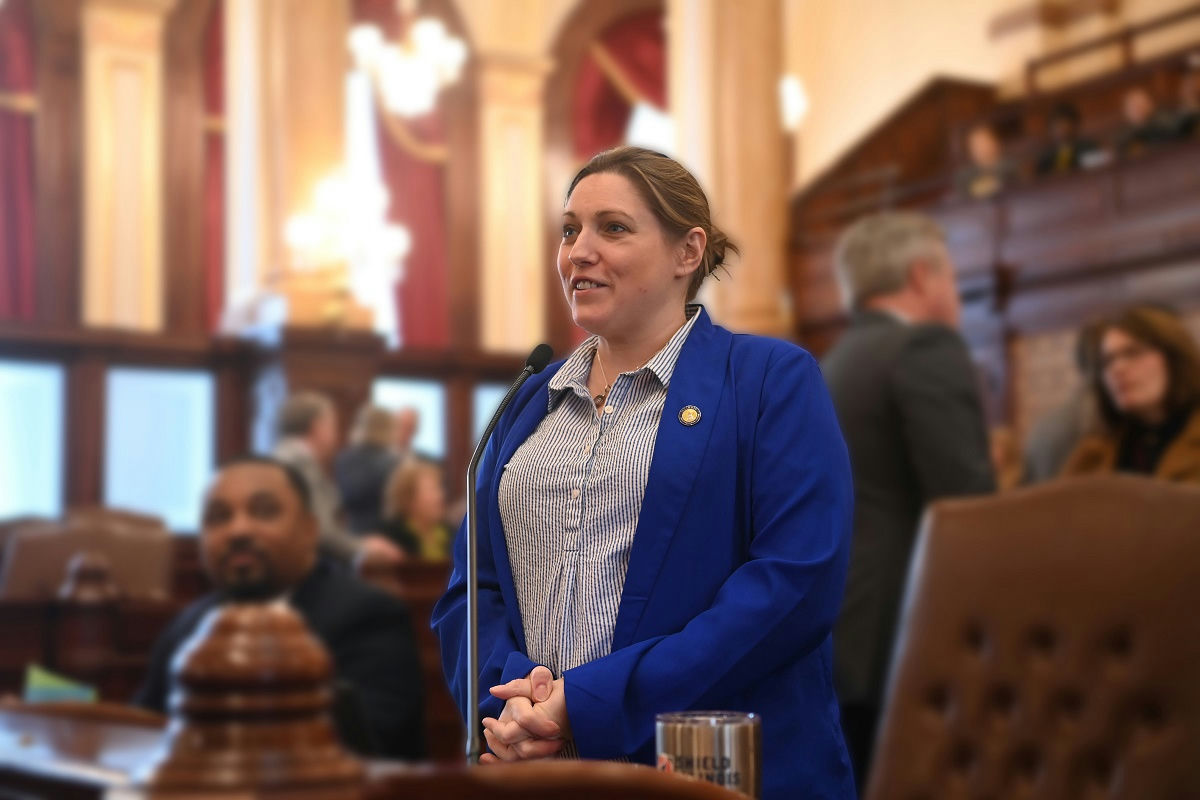Ventura leads legislation to reform tax increment financing
- Details

SPRINGFIELD – State Senator Rachel Ventura introduced a new measure to modernize Tax Increment Financing (TIF) programs by strengthening transparency, protecting taxpayers and ensuring economic development incentives deliver meaningful benefits to local communities.
“TIF districts can be a powerful tool for promoting economic development, revitalizing underinvested communities and promoting growth and development of our cities and towns,” said Ventura (D-Joliet). “This legislation ensures TIFs are used responsibly, prevents abuse of incentive programs and helps direct resources where they are needed most.”
TIF districts are used by municipal governments to stimulate economic development in targeted areas — those categorized as “blighted.” Ventura’s initiative would reform several key components of TIFs. The measure would tighten the criteria used to designate areas as blighted, preserves important definitions such as dilapidation and clarifies that farmland cannot be classified as blighted for TIF eligibility.
The proposal limits the duration of new TIF districts to 10 years, with the option for a single five-year extension, helping ensure redevelopment tools remain targeted and temporary. School districts would be allowed to opt out of a TIF district, and 10% of annual TIF funds would be set aside for local chambers of commerce to distribute small business grants within the district.
To prevent municipalities from shifting businesses from one area to another simply to capture tax incentives, the bill strengthens anti-poaching protections. The legislation expands restrictions on overlapping economic development zones and applies them across multiple incentive programs, including TIFs, Enterprise Zones, STAR bonds and similar tax incentive structures.
“We have seen these economic incentives come at the expense of our schools, small businesses and homeowners,” said Ventura. “This legislation strikes a balance between supporting economic development and protecting taxpayers, schools and local governments.”
Senate Bill 3829 currently awaits committee assignment.
Ventura champions legislation to remove big money from elections
- Details
 SPRINGFIELD – In response to the far-reaching effects of the U.S. Supreme Court’s Citizens United v. FEC decision, State Senator Rachel Ventura has filed two measures aimed at reducing the influence of corporate and billionaire spending in Illinois elections and restoring power to voters.
SPRINGFIELD – In response to the far-reaching effects of the U.S. Supreme Court’s Citizens United v. FEC decision, State Senator Rachel Ventura has filed two measures aimed at reducing the influence of corporate and billionaire spending in Illinois elections and restoring power to voters.
The Citizens United ruling allowed corporations to spend unlimited money to influence elections, fundamentally reshaping campaign finance across the country. Ventura’s legislation seeks to counter those effects at the state level by increasing transparency around corporate political spending and restricting corporations from directly influencing state and local elections.
Ventura introduces measures to fortify broadband access for Illinoisans
- Details
 SPRINGFIELD — Recognizing residents’ need for reliable, high-speed internet access – especially for active participation in today’s society – State Senator Rachel Ventura introduced two new measures that would expand on and protect broadband access for Illinoisans.
SPRINGFIELD — Recognizing residents’ need for reliable, high-speed internet access – especially for active participation in today’s society – State Senator Rachel Ventura introduced two new measures that would expand on and protect broadband access for Illinoisans.
“Investments in broadband are essential for all Illinoisans, regardless of whether they live in a rural, suburban or urban community,” said Ventura (D-Joliet). “We’ve entered a new age where broadband is no longer a luxury, but an essential amenity, driving economic activity, improving education, expanding health care access and enhancing public services for all.”
Ventura Introduces Housing Package to Combat Private Equity Takeover and Protect Affordable Housing
- Details
 SPRINGFIELD - State Senator Rachel Ventura introduced a package of legislation aimed at addressing the growing role of private equity firms in Illinois’ housing market, which has driven up home prices, reduced housing availability and turned residential properties into high-profit investment assets while many Illinois families struggle to find affordable places to live.
SPRINGFIELD - State Senator Rachel Ventura introduced a package of legislation aimed at addressing the growing role of private equity firms in Illinois’ housing market, which has driven up home prices, reduced housing availability and turned residential properties into high-profit investment assets while many Illinois families struggle to find affordable places to live.
“Across Illinois, we are seeing private equity firms purchase large numbers of homes and apartment buildings, treating housing as a commodity instead of a basic human need,” said Ventura (D-Joliet). “When housing becomes a lucrative investment vehicle, families are forced to compete with corporate buyers, rents increase and pathways to homeownership disappear. These bills are designed to stop predatory practices and help put housing back into the hands of the people who live in these communities.”
More Articles …
Page 2 of 62






